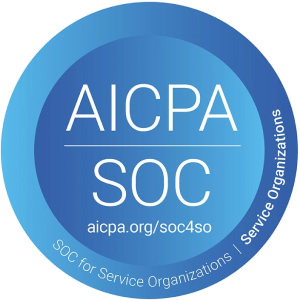


ElevenLabs just dropped V3, and the audio world isn't ready. This isn't another incremental update—it's a complete reimagining of what AI can do with sound, from voices so real they're unsettling to transcription that catches whispers in crowded rooms.
The numbers back up the hype: a $3.3 billion valuation, Disney as a client, and benchmark tests that leave Google and OpenAI scrambling. But here's what matters: V3 might actually change how we create and consume audio forever.
ElevenLabs started as a text-to-speech company, but V3 transforms it into something bigger. The update introduces Scribe, a speech-to-text engine that claims 99-language support with accuracy that beats industry leaders.
The timing is deliberate. Fresh off $180 million in Series C funding, ElevenLabs is attacking from two fronts: perfecting synthetic speech while conquering transcription. Companies like xAI already use it to power Grok's voice.
What sets V3 apart isn't just raw performance—it's the ecosystem approach. Instead of selling APIs piecemeal, they're building complete workflows. Projects turns books into audiobooks. Conversational AI 2.0 handles entire call centers.
The founders' backgrounds tell the story: ex-Google and Palantir engineers who understand enterprise needs. That's why features like HIPAA compliance and batch processing aren't afterthoughts—they're core to V3's design philosophy.
Scribe enters a crowded transcription market with bold claims. Media outlets call it "world's most accurate," and early benchmarks support the hype. But accuracy alone doesn't win markets—context does.
The real test? Messy audio with multiple speakers, background noise, and accents. Where OpenAI Whisper struggles with overlapping voices, Scribe's speaker diarization catches every word. It's the difference between usable and perfect transcripts.
| Tool | Accuracy Claim | Language Support | Pricing |
|---|---|---|---|
| Scribe (ElevenLabs V3) | Highest reported | 99 languages | $0.40/hour API, free UI for now |
| Otter.ai | High with clear audio | Limited vs. Scribe | $20/user/month (Business) |
| OpenAI Whisper | Strong on common languages | ~50 languages | Varies by usage |
The pricing strategy reveals intent. At $0.40 per hour—45% cheaper than before—ElevenLabs isn't competing on features alone. They're undercutting established players while delivering superior results. Smart move or race to the bottom?
Text can't capture what makes V3 voices different. The emotional range, the breathing patterns, the subtle vocal fry—it all adds up to something unnervingly human. Creators testing beta versions report double-takes from listeners.
The demo below shows V3 handling complex emotional shifts mid-sentence. Notice how it doesn't just read words—it performs them. This isn't text-to-speech anymore; it's text-to-performance.
V3 solves problems companies didn't know they had. Take podcast archives: Scribe creates searchable transcripts that catch every speaker, even in noisy panels.
"Our three-hour episodes now take 20 minutes to process perfectly—used to be half a day of manual cleanup."
VoiceDesign opens new creative doors. Game developers generate unique character voices from text prompts. Marketing teams create brand-specific AI assistants. The dubbing feature maintains actor voices across 99 languages—no more awkward mismatches.
Enterprise adoption tells the real story. Companies integrate V3 with Twilio for automated outbound calls. Customer service teams build multilingual agents using Conversational AI 2.0. The HIPAA compliance means healthcare finally gets reliable voice AI.
The Projects feature deserves special mention. Authors upload manuscripts and get professional audiobooks—no studio time, no voice actors. Publishers testing it report 90% cost savings. Airtable databases track which books convert best to audio.
Voice actors aren't celebrating V3's launch. The quality jump from V2 to V3 crosses an uncomfortable line—these voices fool professionals. Reddit threads overflow with existential dread about career endings.
The ethics get murky fast. Voice cloning requires consent, but enforcement remains unclear. What stops someone from creating deepfakes? ElevenLabs promises safeguards, but skeptics remember similar promises from other AI companies.
Some organizations build protection layers. Teams use Slack bots to verify audio authenticity before publishing. Others create voice fingerprinting systems. But playing defense against your own tools feels backwards.
The V3 release sparked questions across forums and social media. Here's what matters, stripped of marketing fluff and technical jargon.
These answers come from hands-on testing, user reports, and official documentation. When in doubt, we tested it ourselves or found someone who did.
| Question | Answer |
|---|---|
| How accurate is Scribe compared to rivals? | Scribe tops benchmarks, beating Whisper in real-world noise and accents. |
| What's the cost for V3 tools? | Scribe API is $0.40/hour; UI free for now. TTS tiers vary by usage. |
| Can V3 handle enterprise needs? | Yes, with API, SDKs, and HIPAA-compliant conversational tools. |
| Is voice misuse a real risk? | Potentially. Safeguards exist, but ethical concerns remain active. |
Need deeper integration? Connect V3 outputs to Google Sheets for transcript analysis or route voice data through existing workflows. The API documentation covers edge cases most vendors ignore.



